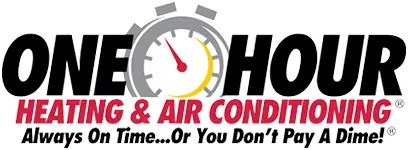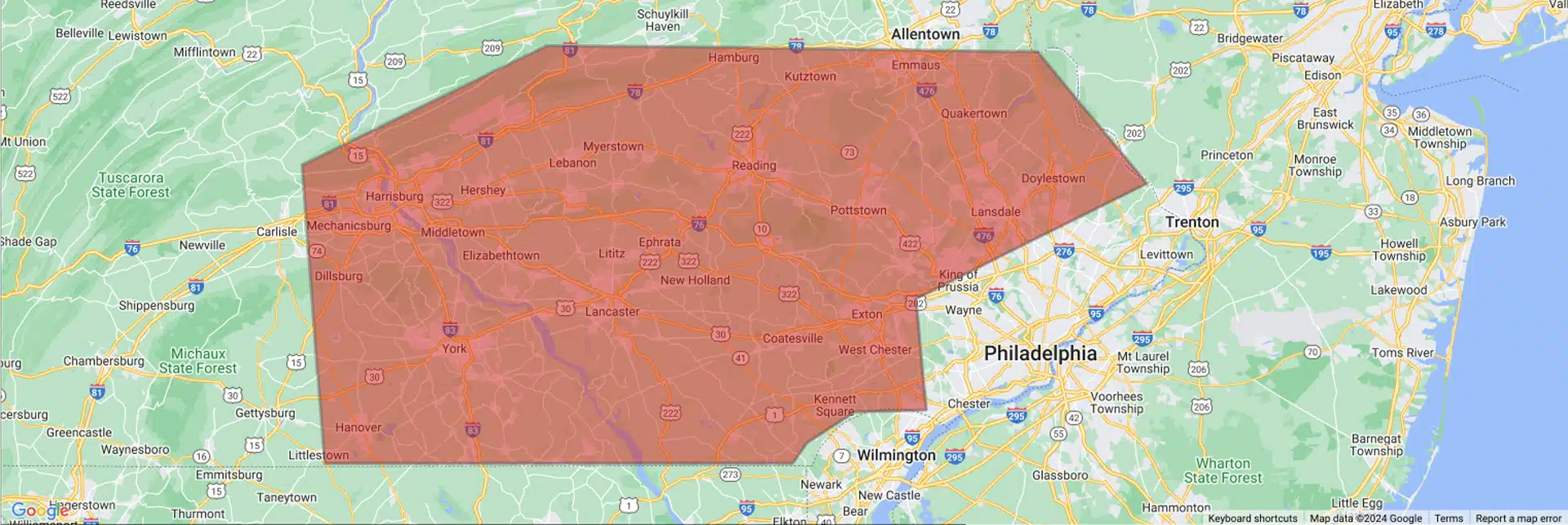HVAC Tune-Ups – Maintaining a comfortable home in Lancaster, Pennsylvania, hinges on the proper functioning of your HVAC system. Whether you’re dealing with the sweltering summer heat or the chilly winter months, a well-maintained HVAC unit ensures your home remains a haven of comfort year-round.
But what exactly does it mean to keep your HVAC system in top shape? This is where HVAC tune-ups come into play. Regular tune-ups are crucial for maintaining system efficiency, preventing unexpected breakdowns, and extending the lifespan of your equipment.

What is an HVAC Tune-Up?
An HVAC tune-up is a comprehensive maintenance service performed on your heating, ventilation, and air conditioning system. Unlike repairs, which address specific issues after they occur, a tune-up is a preventive measure designed to keep your system running smoothly and efficiently. During a tune-up, a technician will inspect, clean, and adjust various components of your HVAC system to ensure it operates at peak performance.
One of the key differences between a tune-up and a repair is the proactive nature of the former. A tune-up focuses on identifying and addressing potential issues before they lead to more significant problems.
This can include checking refrigerant levels, cleaning dirty coils, tightening electrical connections, and calibrating the thermostat. By catching these issues early, a tune-up can help prevent costly repairs down the line and ensure your system is ready to handle the demands of the upcoming season.
The benefits of an HVAC tune-up extend beyond just preventing breakdowns. Regular maintenance also improves the overall efficiency of your system, which can lead to lower energy bills.
A well-tuned HVAC system doesn’t have to work as hard to maintain your desired temperature, reducing the amount of energy it consumes. Additionally, routine tune-ups can extend the lifespan of your equipment, allowing you to get more years of reliable service from your HVAC system.

Why Are HVAC Tune-Ups Important?
HVAC tune-ups play a crucial role in maintaining the efficiency and reliability of your system. One of the most significant benefits of regular tune-ups is the impact they have on energy efficiency.
As your HVAC system ages and experiences regular wear and tear, its efficiency can decline. Dust and debris can accumulate in the system, reducing airflow and making it harder for the unit to heat or cool your home. Components can also become worn or damaged, leading to increased energy consumption as the system struggles to maintain your desired temperature.
By scheduling regular tune-ups, you can help keep your HVAC system running at optimal efficiency. During a tune-up, a technician will clean and inspect key components, ensuring they’re free from dirt and debris.
They’ll also make any necessary adjustments to improve performance, such as tightening loose connections or lubricating moving parts. These small adjustments can make a big difference in how efficiently your system operates, helping you save money on your energy bills.
Another important reason to schedule regular HVAC tune-ups is to prevent costly repairs. Small issues that go unnoticed can quickly turn into major problems if left unaddressed. For example, a minor refrigerant leak might not cause immediate problems, but over time, it can lead to a significant drop in cooling capacity and eventually result in compressor failure. By catching these issues early during a tune-up, you can avoid the need for more expensive repairs down the line.
Prolonging the lifespan of your HVAC system is another key benefit of regular tune-ups. Just like any other piece of equipment, your HVAC system requires regular maintenance to keep it in good working order. Without proper care, components can wear out prematurely, leading to the need for a full system replacement sooner than expected. By investing in regular tune-ups, you can help ensure your HVAC system lasts as long as possible, saving you money on replacement costs.
Lastly, HVAC tune-ups can also enhance the indoor air quality of your home. Over time, dust, dirt, and other contaminants can accumulate in your HVAC system, which can then be circulated throughout your home. During a tune-up, a technician will clean the system and replace filters, helping to remove these contaminants and improve the air quality in your home. This is especially important for households with allergy sufferers or individuals with respiratory conditions, as cleaner air can contribute to better overall health.
What Does a Typical HVAC Tune-Up Include?
A typical HVAC tune-up involves a thorough inspection and maintenance of your system’s key components. While the specific tasks performed during a tune-up can vary depending on the age and condition of your system, there are several standard procedures that most technicians will carry out.
One of the first steps in a tune-up is the inspection of key components, such as the air filters, coils, and thermostats. The technician will check the condition of these components to ensure they’re functioning properly. Dirty air filters, for example, can restrict airflow and reduce system efficiency, so they’ll be replaced if necessary. The coils will also be inspected for dirt and debris, which can hinder the system’s ability to cool or heat your home effectively.
Lubrication of moving parts is another important aspect of a tune-up. Over time, the various components of your HVAC system can experience wear and tear, leading to increased friction and reduced efficiency. By lubricating these parts, the technician can help reduce friction, improve efficiency, and prevent premature wear.
Checking refrigerant levels is also a critical part of a tune-up. Refrigerant is the substance that allows your HVAC system to cool your home, and it needs to be maintained at the proper level for optimal performance. During a tune-up, the technician will check the refrigerant levels and add more if necessary. Low refrigerant levels can indicate a leak in the system, which will need to be addressed to prevent further issues.
Testing the system’s controls is another key component of a tune-up. The technician will ensure that all of the system’s controls are functioning properly, including the thermostat, safety controls, and the blower motor. This helps ensure that the system will operate safely and efficiently when you need it most.
Finally, cleaning and adjustments are a standard part of any tune-up. The technician will clean various components of the system, such as the coils, blower motor, and condensate drain, to remove dirt and debris that can hinder performance. They’ll also make any necessary adjustments to improve efficiency, such as tightening loose connections or calibrating the thermostat.
Signs Your HVAC System Needs a Tune-Up
There are several signs that your system may need HVAC Tune-Ups.
One of the most common indicators is unusual noises or smells coming from the system. If you notice banging, clanking, or other unusual sounds when your system is running, it could be a sign that something is wrong.
Similarly, strange odors, such as a burning smell, can indicate that there’s an issue that needs to be addressed, making HVAC Tune-Ups essential.
Another sign that your system needs HVAC Tune-Ups is an increase in your energy bills. If you’ve noticed that your energy bills have been steadily rising, even though you haven’t been using your HVAC system more frequently, it could be a sign that the system is not operating as efficiently as it should be.
Regular HVAC Tune-Ups can help identify and address any issues that may be causing your system to use more energy than necessary.
Uneven heating or cooling is another common sign that your system needs HVAC Tune-Ups. If you notice that some rooms in your home are significantly warmer or cooler than others, it could be a sign that your system is struggling to distribute air evenly. This could be due to a variety of issues, such as clogged ducts or a malfunctioning thermostat, which can be addressed during HVAC Tune-Ups.
Frequent cycling on and off is another indicator that your HVAC system may need HVAC Tune-Ups. If your system is constantly turning on and off, it could be a sign that it’s struggling to maintain the desired temperature. This could be due to a variety of issues, such as a dirty air filter or a malfunctioning thermostat, both of which can be addressed during HVAC Tune-Ups.
Is your HVAC system struggling to keep you comfortable? Discover the top signs that indicate it’s time for a professional tune-up to ensure efficiency and reliability.
Seasonal HVAC Tune-Ups: From Cooling to Heating
As the weather shifts in Lancaster, Pennsylvania, it’s essential to prepare your HVAC system for the colder months. A seasonal tune-up ensures your system is ready to keep your home comfortable all winter.
A professional technician will clean and inspect key components like the furnace, heat pump, and thermostat. They’ll also check for any potential issues, such as worn-out parts or cracks in the heat exchanger, to prevent breakdowns and ensure safety.
Addressing common problems like clogged filters and dirty coils during a tune-up can improve efficiency and avoid costly repairs. Regular maintenance also helps prepare your system for the next season, keeping it in optimal condition year-round.
DIY vs. Professional HVAC Tune-Ups
Homeowners can handle simple tasks like changing air filters and clearing debris around the outdoor unit. However, professional tune-ups are crucial for tasks requiring specialized knowledge, like checking refrigerant levels and adjusting system controls.
Professionals can also spot issues that might be missed by the untrained eye, ensuring your system is properly maintained and avoiding potential damage from DIY mistakes. A professional tune-up keeps your HVAC system running efficiently and safely through the season.
Cost of HVAC Tune-Ups: What to Expect
The cost of HVAC Tune-Ups can vary depending on several factors, including the age and condition of your system, the complexity of the tasks involved, and the rates charged by the service provider. One of the key factors that can influence the cost of HVAC Tune-Ups is the age of your system. Older systems may require more extensive maintenance, such as replacing worn components or addressing issues related to age-related wear and tear. Additionally, if your system has not been maintained regularly, there may be more issues that need to be addressed during the HVAC Tune-Up, which can increase the overall cost.
Another factor that can influence the cost is the complexity of the tasks involved. For example, if your system requires a refrigerant recharge or more in-depth cleaning, this can add to the overall cost. Similarly, if any issues need to be repaired, such as a malfunctioning thermostat or a leaking refrigerant line, this can also increase the cost of HVAC Tune-Ups.
The rates charged by the service provider can also vary, depending on their level of expertise and the services they offer. Some providers may offer maintenance contracts, which can provide additional savings over time. These contracts typically include regular HVAC Tune-Ups and repairs, making them a cost-effective option for homeowners who want to ensure their system is well-maintained.
While the cost of an HVAC Tune-Up may seem like an additional expense, it’s important to consider the long-term savings it can provide. Regular HVAC Tune-Ups can help improve the efficiency of your system, leading to lower energy bills. They can also help prevent costly repairs by identifying and addressing issues early on. By investing in regular HVAC Tune-Ups, you can help ensure that your system operates efficiently and avoid the need for more expensive repairs down the line.
Choosing the Right HVAC Service Provider in Lancaster, PA
When it comes to choosing an HVAC service provider for your tune-up in Lancaster, PA, it’s important to consider several factors. First and foremost, you’ll want to ensure that the provider has the necessary experience and expertise to perform the tune-up properly. Look for providers who are licensed and certified, and who have a strong reputation in the community.
Local expertise is another important factor to consider. A provider who is familiar with the specific needs of homes in Lancaster, PA, can offer more tailored services and advice. They’ll also be more knowledgeable about the local climate and how it can impact your HVAC system, allowing them to provide more effective maintenance and repairs.
When selecting a service provider, it’s also important to consider the range of services they offer. In addition to tune-ups, you may want to choose a provider who can offer a comprehensive range of HVAC services, including repairs, installations, and emergency services. This ensures that you’ll have a reliable partner to turn to for all your HVAC needs.
One Hour Heating & Air Conditioning of Lancaster, PA, stands out as a top choice for HVAC tune-ups in the area. With years of experience and a commitment to customer satisfaction, they offer a comprehensive range of services to keep your HVAC system running smoothly. Their team of skilled technicians provides high-quality maintenance and repairs, ensuring that your home remains comfortable year-round.
Conclusion
Regular HVAC tune-ups are essential for maintaining the efficiency, reliability, and longevity of your system. By scheduling a tune-up with a trusted service provider like One Hour Heating & Air Conditioning of Lancaster, PA, you can ensure that your system is well-maintained and ready to handle the demands of each season.
Don’t wait until your system breaks down—invest in regular tune-ups to keep your home comfortable and your energy bills low.

FAQs About HVAC Tune-Ups
-
What is an HVAC tune-up, and why do I need one?
An HVAC tune-up is a comprehensive maintenance service that ensures your heating and cooling system operates efficiently and reliably. During a tune-up, a technician inspects, cleans, and adjusts various components to optimize performance. Regular tune-ups are essential to prevent breakdowns, improve energy efficiency, extend the lifespan of your system, and maintain indoor air quality.
-
How often should I schedule an HVAC tune-up?
It’s recommended to schedule an HVAC tune-up twice a year: once in the spring before the cooling season and once in the fall before the heating season. This ensures your system is prepared to handle the demands of both summer and winter, reducing the risk of unexpected breakdowns.
-
What does a typical HVAC tune-up include?
A typical HVAC tune-up includes inspecting key components like air filters, coils, and the thermostat, lubricating moving parts, checking refrigerant levels, testing system controls, and cleaning the system. Technicians may also adjust improve efficiency and address any potential issues before they become major problems.
-
Can I perform an HVAC tune-up myself, or should I hire a professional?
While homeowners can perform basic maintenance tasks like changing air filters and cleaning the area around the outdoor unit, it’s best to hire a professional for a full tune-up. HVAC systems are complex, and a trained technician has the expertise to perform thorough inspections, make necessary adjustments, and identify potential issues that an untrained eye might miss.
-
What are the signs that my HVAC system needs a tune-up?
Common signs that your HVAC system needs a tune-up include unusual noises or smells, increased energy bills, uneven heating or cooling, and frequent cycling on and off. If you notice any of these issues, it’s a good idea to schedule a tune-up to prevent further problems.





















